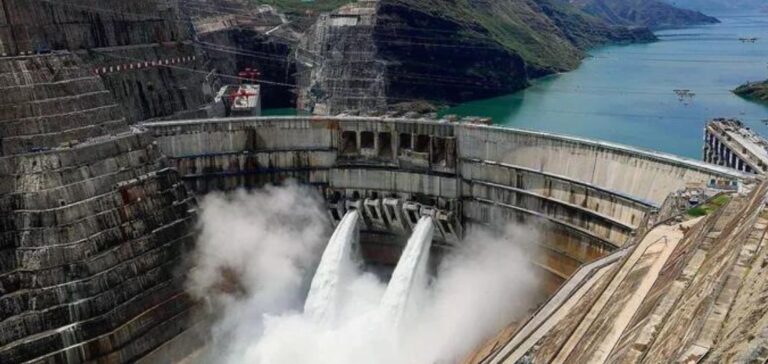China recorded coal production of 390.37 million tonnes in July 2024, marking an increase of 2.8% on the previous year.
This increase comes against a backdrop of strong demand due to exceptionally high temperatures, which prompted the authorities to step up coal supplies to stabilize the energy market.
At the same time, thermal power generation, traditionally fuelled by coal, continued to decline for the third consecutive month.
In July, it fell by 4.9%, mainly due to the boom in hydroelectricity, which took advantage of heavy rainfall to increase its share of China’s energy mix.
Nevertheless, coal remains an essential pillar in meeting the country’s immediate energy needs.
The impact of hydraulic dynamics on energy production
The month of July saw a significant increase in hydropower production, reaching 166.4 billion kilowatt-hours, up 36.2% year-on-year.
This increase in power has enabled China to reduce its dependence on thermal energy, illustrating the country’s ability to rapidly adjust its energy sources in response to climatic conditions.
However, the need to maintain sufficient coal reserves prompted mines to step up production.
The contrast between the decline in thermal production and the increase in hydropower underlines the challenges facing China’s energy sector as it seeks to balance increasing diversification with security of supply.
The coal industry, although under pressure, continues to play a crucial role, particularly in sectors where coal remains indispensable, such as the chemical industry, which saw its coal consumption rise by 21% in the first half of 2024.
Outlook and regulatory adjustments
Despite efforts to diversify energy sources, the Chinese authorities have had to face up to complex operational realities.
Recent safety inspections, particularly in Shanxi province, the main coal-producing region, have led to a temporary reduction in production.
These measures, designed to prevent accidents and control overproduction, had an impact on total coal production, which stood at 2.66 billion tonnes for the period January to July, down slightly by 0.8% on the previous year.
The current situation highlights the need for China to continue to adapt its energy strategy, balancing the transition to cleaner energies with the reality of coal requirements.
The outlook for the coming months depends largely on weather conditions and regulatory adjustments, which could influence production and consumption in the various sectors.






















